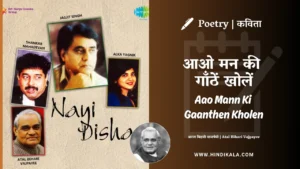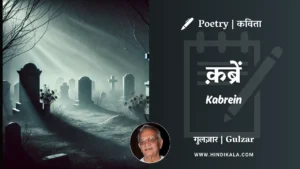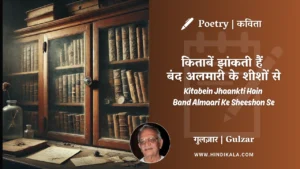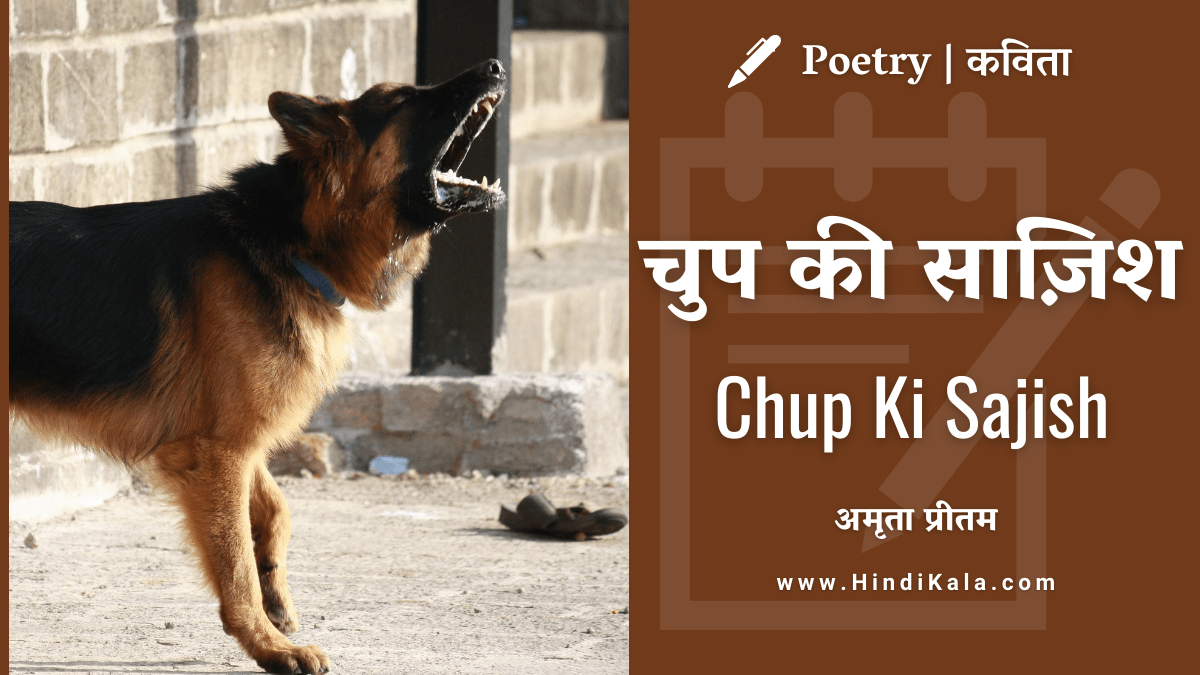Gulzar Poetry Ik Zara Chheenk Hi Do Tum in Hindi & English with Meaning (English Translation) | गुलज़ार – इक जरा छींक ही दो तुम
Hindi Kala presents Gulzar Poetry Ik Zara Chheenk Hi Do Tum about rituals for God in Hindi & English with the poem’s Meaning (English Translation).
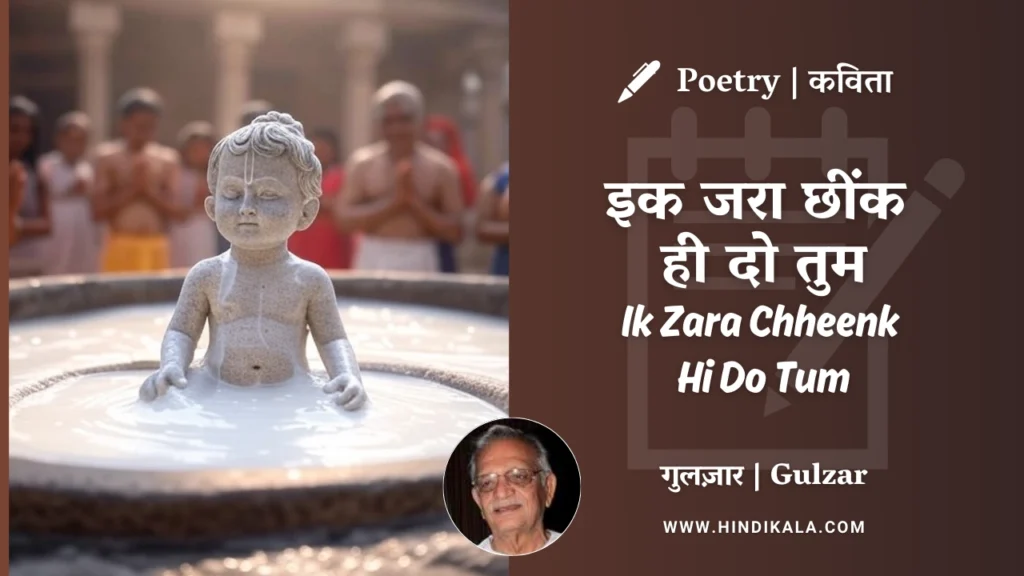
गुलज़ार की कविता इक जरा छींक ही दो
चिपचिपे दूध से नहलाते हैं,
आंगन में खड़ा कर के तुम्हें
शहद भी, तेल भी, हल्दी भी, ना जाने क्या क्या
घोल के सर पे लुढ़काते हैं गिलासियाँ भर के
औरतें गाती हैं जब तीव्र सुरों में मिल कर
पाँव पर पाँव लगाए खड़े रहते हो
इक पथराई सी मुस्कान लिए
बुत नहीं हो तो परेशानी तो होती होगी
जब धुआँ देता, लगातार पुजारी
घी जलाता है कई तरह के छौंके देकर
इक जरा छींक ही दो तुम
तो यकीं आए कि सब देख रहे हो
Gulzar Ki Kavita Ik Zara Chheenk Hi Do Tum in Roman Transcript
Chipchipe Doodh Se Nehlaate Hain,
Aangan Mein Khada Kar Ke Tumhe
Shehad Bhi, Tel Bhi, Haldi Bhi, Na Jaane Kya Kya
Ghol Ke Sar Pe Ludhkaate Hain Gilasiyaan Bhar Ke
Auratein Gaati Hain Jab Teevr Suron Mein Mil Kar
Paanv Par Paanv Lagaaye Khade Rehte Ho
Ek Pathraayi Si Muskaan Liye
But Nahin Ho To Pareshaani To Hoti Hogi
Jab Dhuaan Deta, Lagataar Pujari
Ghee Jalata Hai Kai Tarah Ke Chhonke Dekar
Ik Zara Chheenk Hi Do Tum
To Yakeen Aaye Ki Sab Dekh Rahe Ho
Gulzar Hindi Poetry Ik Zara Chheenk Hi Do Tum Meaning (English Translation)
They bathe you with sticky milk,
standing you in the courtyard
Honey, oil, turmeric, goodness knows what else
They pour over your head, filling glasses
When women sing in sharp unison,
You stand motionless, foot over foot,
Bearing a stone-like smile,
If you are no idol, you must feel uneasy.
When the priest continuously offers smoke
Burning ghee with various incenses
If you just sneeze a little
To assure us you are watching it all.
Essence of the Poem
This poem vividly depicts a ritualistic and somewhat oppressive environment, most likely a critique of religious or societal norms.
Key Themes:
Objectification: Without their consent, the subject is treated like an object and is bathed and decorated with different materials.
Performance: The actions described, such as the women singing and the priest offering incense, suggest a performance or ritual.
Dehumanization: The subject is compared to a statue, implying a lack of agency or autonomy.
Surveillance and Control: The environment is controlled, as evidenced by the ongoing observation and the anticipation of a response (sneezing).
Interpretation:
The poem could be seen as a commentary on:
Child rearing: The subject could be a child, being subjected to traditional and possibly excessive rituals.
Religious practices: It is possible that the poem is mocking or criticizing specific religious rituals in which people are expected to adhere to strict rules.
Societal expectations: The poem might be a more general critique of conformity pressure and societal expectations.
The poem has an objectified and detached tone throughout. The subject loses all agency and individuality and is reduced to a mere object. A sense of helplessness and alienation is produced by the subject’s repeated actions and lack of personal reaction.
You Might Also Like
Tags:


